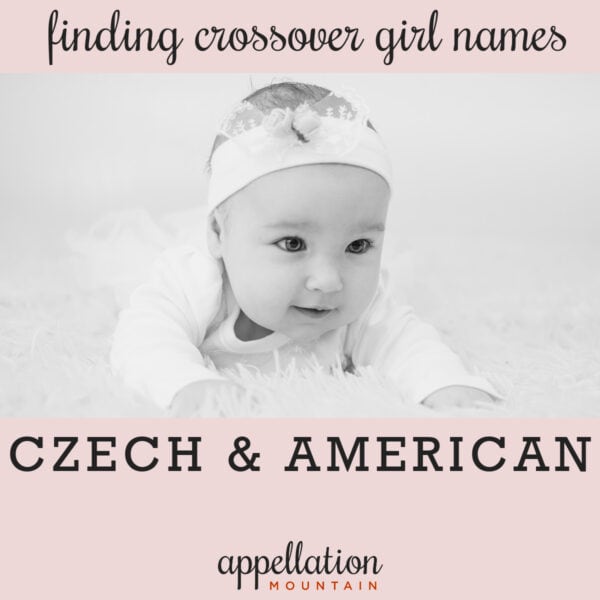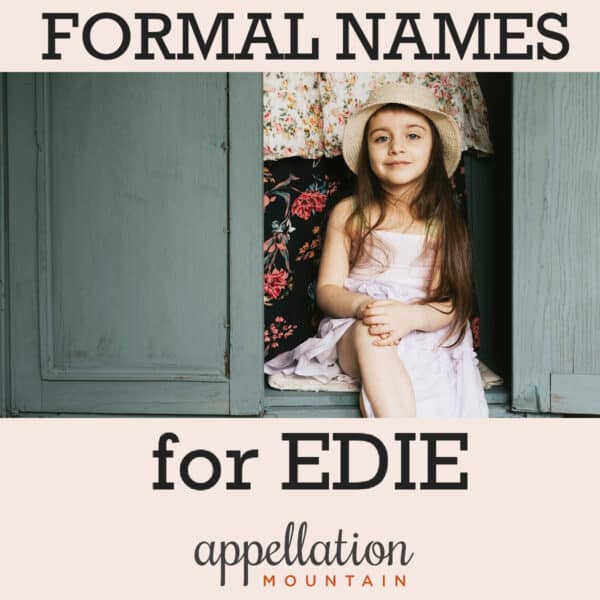Right about now, you might be wondering if I’ve finally lost it. Caelin, really? What’s next? Madisynne? Aydhin?
Not so. Caelin has a legitimate history of use, as both a masculine and feminine moniker.
Emmy Jo gets a gold star for unearthing the most obscure Name of the Day yet – the masculine Caelin.
First let’s get the female Caelin out of the way. Saint Caellainn, Caolainn, Caoilfionn or Caoilfhionn lived in the sixth century. Little is known of her life, but a church named after her stands in Roscommon, Ireland. When her name is Anglicized, it usually becomes Keelin or Keelan – which, in turn, is sometimes heard as a surname.
The male Caelins – two of them – appear in the Venerable Bede’s Ecclesiastical History of the English People. Saint Bede lived – and wrote – at the turn of the eighth century. While some histories from the era are little more than a collection of popular tales, Bede was part of the monastery at Wearmouth, the rare place where he’d have access to a wealth of written records from times past. Plenty of his points are open to debate, but it’s largely a factual account.
The first Caelin was a priest, and brother to three other priests – Ceadda, Cedd and Cynibil. Cedd set off to evangelize the Mercians and became a bishop and a saint. Ceadda – commonly Anglicized as Chad – became a bishop and a saint, too. The quartet were well born, educated and apparently supported each others’ efforts, both spiritually and in practical matters.
The second Caelin is also called Ceawlin. Or Ceaulin. In any case, he was King of Wessex and successful at expanding his holdings through the late 500s. His reign may have ended in civil war – it’s not clear. His name is sometimes Anglicized as Coelin.
There are a few more fragments that point towards Caelin’s use in the early Middle Ages:
- Caillin was a seventh century bishop known for taking on Druids and spending time with Saint Aidan; he became a saint himself.
- Speaking of Aidan, like Ronan and many other Gaelic monikers, the name Caolán is used sparingly. It’s a combination of caol – slender – and the suffix án, meaning “little one.” Caoilfionn is the feminine version.
At least one modern notable wears a version of the name. Viscount Weymouth was named Ceawlin Henry Laszlo Thynn after the medieval ruler.
What seems most likely is that Caol, Cail and Ceal were popular sounds in names for a few centuries in the Early Middle Ages. There’s an almost mind-boggling list of names that could be related.
But does any of it matter?
Kaylin ranked #376 for girls born in the US in 2007. Kaylynn was #599, Kaylyn #642 and Kaylen #849. She’s a logical extension of the Kayla/Mikayla/Kaylee/Kayden/Kaydence trend in recent years. A few baby names sites link Kaylin and Caoilfhionn, despite the pronunciation issue.
Name a son Caelin, and regardless of his roots in English history, odds are that he’ll grow up feeling that he has a girl’s name – and a creatively spelled one at that!
The best bet to preserve this unusual choice might be to stick with the Ceawlin spelling and say it KEEL on or KEEL in.
But I’ll admit, I’m divided on Caelin and humbly hand this one over to the readers. Would Caelin strike you as an appealing medieval revival pick, or is he too close to trendy girls’ appellations to wear well on a boy?




Dope, feel the same way. Just stumbled upon this post and it’s years old so you’ll probably never see this, it from one male Caelin to another, I think you’re awesome.
I just found this site doing a google search on Sts. Caolan or Caellainn. My husband wants the name Kellan/Kelan/Kellen (not sure on the spelling yet) for a boy. We are Catholic and a patron saint to go with our names is a must. A couple of Catholic baby name books have given me “St. Callan” as a namesake for Kellan and I can’t find a thing about him ANYWHERE. Anyhow, I was wondering if someone could give me a phonetic pronunciation of the above names. Are they close enough sounding to Kellan to use as a patron…or does anyone know anything about the mysterious St. Callan? Thank you!
I’m actually a female Cailin (pronounced the same as the above names). The spelling looks more like the Irish word for girl ‘cailín’ (which is pronounced Colleen). I actually wanted to change the spelling of my name to Caoilfhionn (I’m told in some regions of Ireland these names are pronounced like Caelin) so it would be more ‘authentic’ but I got too many thumbs down. And to be fair, it would probably complicate things.
My name is Caelin and i’m female! Am I the only one? I kind of don’t like my name, though…
My daughter in Roscommon is Caolann
I much prefer Caelia for a girl than Caelin. It has the ultra feminine -lia at the end so there is no gender confusion.
My sons name is Caelin — we pronounce it Kai Lin – Ky Lin —
My Name is Caelin and I am a female. Whenever I spell my name to someone, they always tell me how unusual and beautiful my name is. I love my parents for giving me this name, to date, I have never met anyone with my spelling and I travelled to 13 countries
My name is Caelin, too. I’ve never met a sing person with the spelling, either. I am female, and I feel like I am the only female! It’s nice knowing someone else has the same name, because I thought it was weird since I never met anyone else.
My sons name is Ciallan (sounds like Keelin) and never has anyone ever questioned it as a girls name… Everyone that hears it loves it… The spelling on the other hand is a bit of a task as we always have to spell it out for people. His father who is Irish refused to have a K in the name as it is not in the irish alphabet. I guess if you start using it as a boys name it wont sound so girly once more biys are been called it 🙂